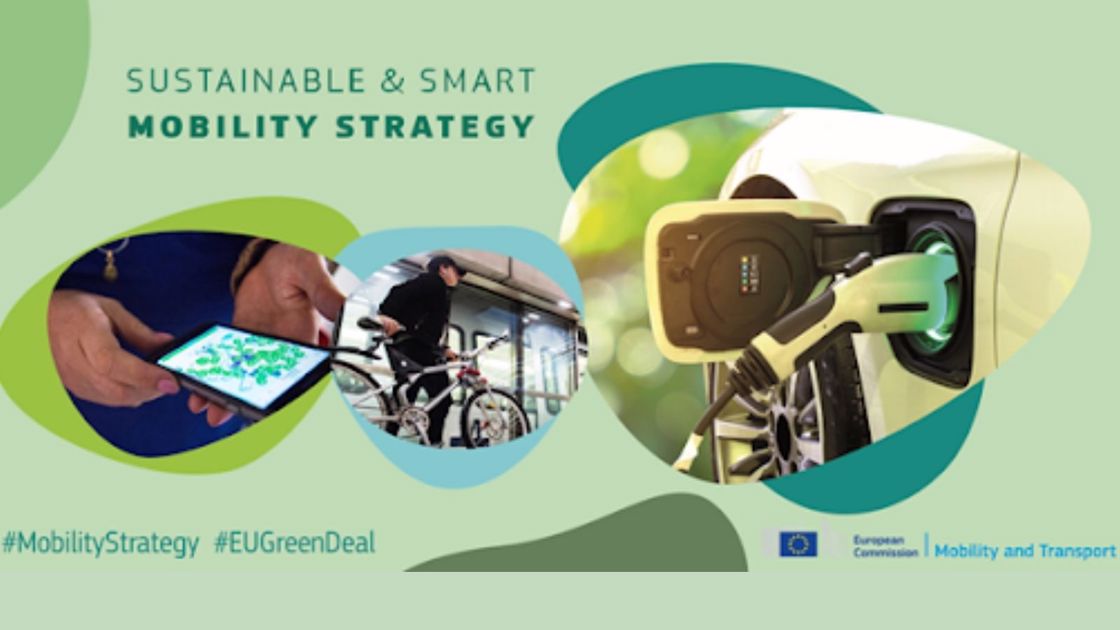Industrial workers must be actively involved in shaping this transition which must deliver investment, innovation and good jobs along the industrial value chains.
The European Commission has published a comprehensive strategy entitled ‘A Smart and Sustainable Mobility Strategy for Europe’. The strategy aims to prepare EU transport for the twin digital and green transition.
While presenting a significant source of greenhouse gas emissions, transport is paramount for EU prosperity, as well as social cohesion. The manufacturing industry is both a supplier of transport equipment (vehicles, rail rolling stock, ships, aircrafts) and materials (e.g. tracks, signalisation) as well as a user of transport services. Transport is therefore key for sustaining industrial jobs.
IndustriAll Europe welcomes the objective to make EU transport fit for the digital and zero emission economy. A clear direction for EU transport will provide clarity and stability for the European transport industry and workers. European mobility will be radically transformed. Industrial workers must therefore be actively involved in shaping this transition which must deliver investment, innovation and good jobs along the industrial value chains. Workers must also have a say about measures taken to cope with structural change.
The mobility strategy provides opportunities for industry and for industriAll Europe, it is of the utmost importance that the strategy leads to a massive fleet renewal for road, air, waterborne and rail transport, while respecting technology neutrality. It will also be crucial to ensure that the strategy contributes to the strengthening of EU industrial leadership in the manufacturing of transport goods and equipment.
“To ensure that the related European industrial value chains will be the backbone of the transformation of EU transport, the EU mobility strategy must go hand in hand with strengthening the EU industrial base. We have the know-how and the qualified workforce to produce the vehicles, ships, trains and planes of tomorrow, as well as to manufacture the technologies needed for a more efficient management of the transport system. This is also the right moment to demonstrate that ‘strategic autonomy’ is more than an EU fad”, said Luc Triangle, IndustriAll Europe General Secretary.
From this perspective, all EU actions will have to be coherent. Coordination between the mobility and industrial strategies is crucial for the workers we represent. Announced measures must be implemented at a pace that is compatible with the time needed to transform production facilities, build new plants, improve infrastructures, create lead markets, or to prepare the workforce. Otherwise, it could trigger disruptive changes for the EU industry and its workforce.
“The announced measures must be based on deep impact assessments for all the sectors at stake, to avoid disruptive change for the workers. We fully support the transformation of our transport system, but timing matters and decarbonisation cannot mean deindustrialisation!” said Judith Kirton-Darling, industriAll Europe Deputy General Secretary.
Reaching ‘zero-emission mobility’ entails significant investment needs. The mobility strategy estimates additional investment needed to renew vehicles and improve infrastructures equivalent to EUR 130 billion per year, for the next decade. Regrettably, it fails to provide a detailed investment strategy. Pragmatic use of the EU recovery and EU budget will be essential as well as a policy framework that enables public authorities to provide the necessary support.
“We have seen an alarming wave of restructurings and job losses this year in sectors that could be impacted by the announced measures, such as automotive and aerospace. The lack of liquidity and shrinking markets are worrying and betting on private investment is risky. Policy makers must provide more certainty about how public and private investment can support the mobility strategy” stressed Luc Triangle.
Securing workers’ participation from all relevant sectors will be important to anticipate change and build ownership. Millions of industrial workers will be impacted by the measures at stake, or the technological shifts promoted. They all deserve the attention of policymakers. This dimension is missing from the strategy.
“The mobility system cannot be revamped without impacting on those who produce the goods that allow us, and what we consume, to be transported. The impact on the labour market goes well beyond the transport workers, and it must be better anticipated, with the active participation of workers”, said Isabelle Barthès, Deputy General Secretary of industriAll Europe.
An affordable mobility system is necessary for social and territorial cohesion, as stated in the mobility strategy. However, the strategy is too vague when describing how the EU will cushion the social impact of the transformation of its transport system. We know that many of the announced measures will entail significant costs.
“The EU must ensure, through specific initiatives, that every worker, wherever he or she lives and works will have access to mobility. This is especially important in the remote and poor regions of Europe”, stressed Luc Triangle.
Contact: Andrea Husen-Bradley (press and communication), Benjamin Denis (senior policy adviser)
